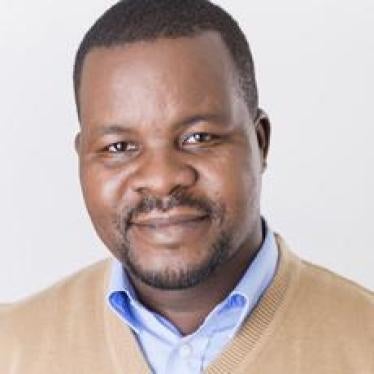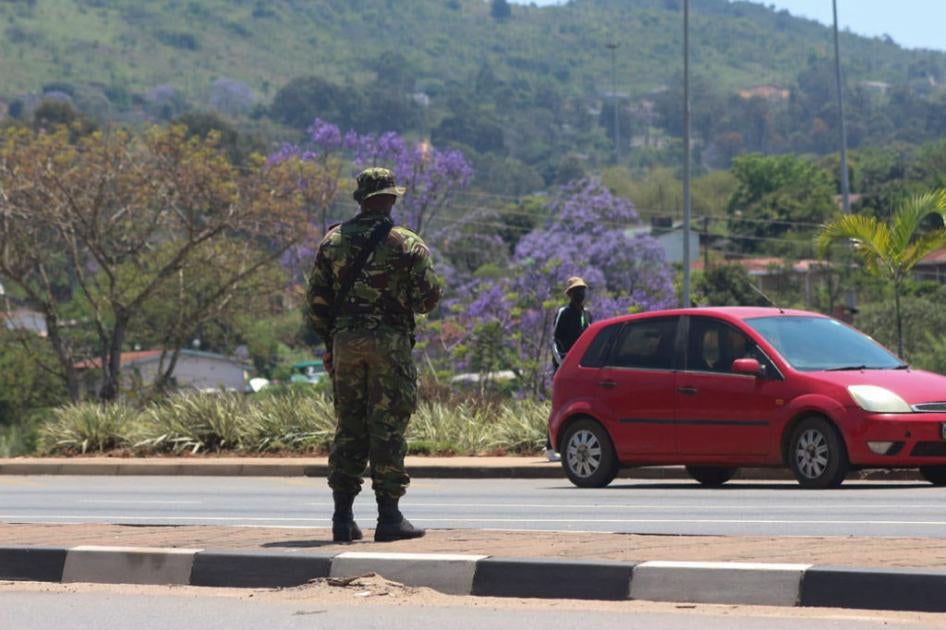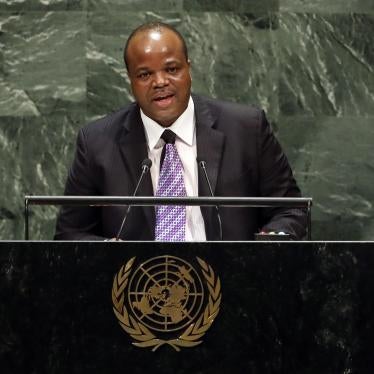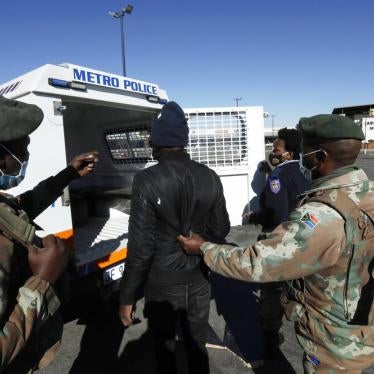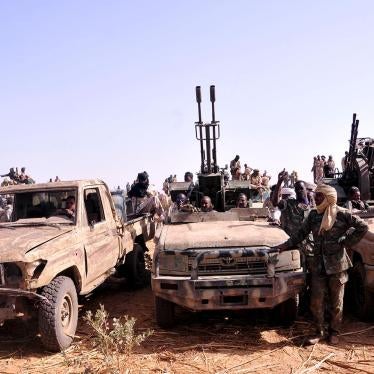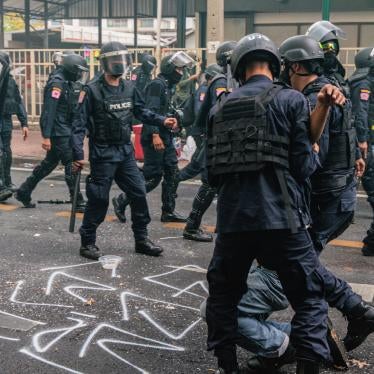Eswatini police fired live ammunition and teargas into a bus full of people traveling to the capital, Mbabane, on October 20 to protest the incarceration of two pro-democracy Members of Parliament. Some of the bus passengers were injured and had to be hospitalized, the rest were turned back and prevented from going into the city center. The two MPs, Mduduzi Bacede Mabuza and Mthandeni Dube, who called for democracy in the kingdom, have been in custody since July 25 and are facing trumped-up terrorism charges under section 5(1) of the Suppression of Terrorism Act of 2008, and additional charges for the alleged murder of a man named Thando Shongwe. Their trial was scheduled to commence on October 20, but according to a lawyer who was in court, it was postponed to November 16.
One activist told me by phone from Mbabane that protesters have vowed to press on with their protests until the two MPs are released. Protests have rocked Eswatini, Africa’s last absolute monarchy, since May this year, when students and teachers marched to vent their anger at the alleged police killing of Thabani Nkomonye, a law student at the University of Swaziland. The authorities initiated an investigation into the killing, but protests escalated in late June when about 500 youths took to the streets in Manzini district, 30 kilometers from Mbabane, demanding democratic reforms. The authorities responded by banning demonstrations and deployed soldiers and the police to disperse protesters.
Instead of resorting to lethal force, and teargassing people in confined spaces, Eswatini authorities should ensure that security forces deployed in the wake of protests respect citizens’ rights, avoid arbitrary use of force, and observe international standards of law enforcement. They should also put in place a range of measures to safeguard citizens against police violence and prosecute all unlawful use of force.
In an attempt to resolve the ongoing political and security crisis in Eswatini South Africa’s President, Cyril Ramaphosa, in his capacity as the chair of the Southern African Development Community (SADC) Organ on Politics, Defence, and Security Cooperation, appointed special envoys to engage Eswatini authorities. Unless these envoys succeed in pressing Eswatini authorities to respect the right to peaceful protest, as enshrined in the country’s own constitution, and ensure the protection of lives, more ordinary Eswatini citizens stand to suffer under the present crackdown.
